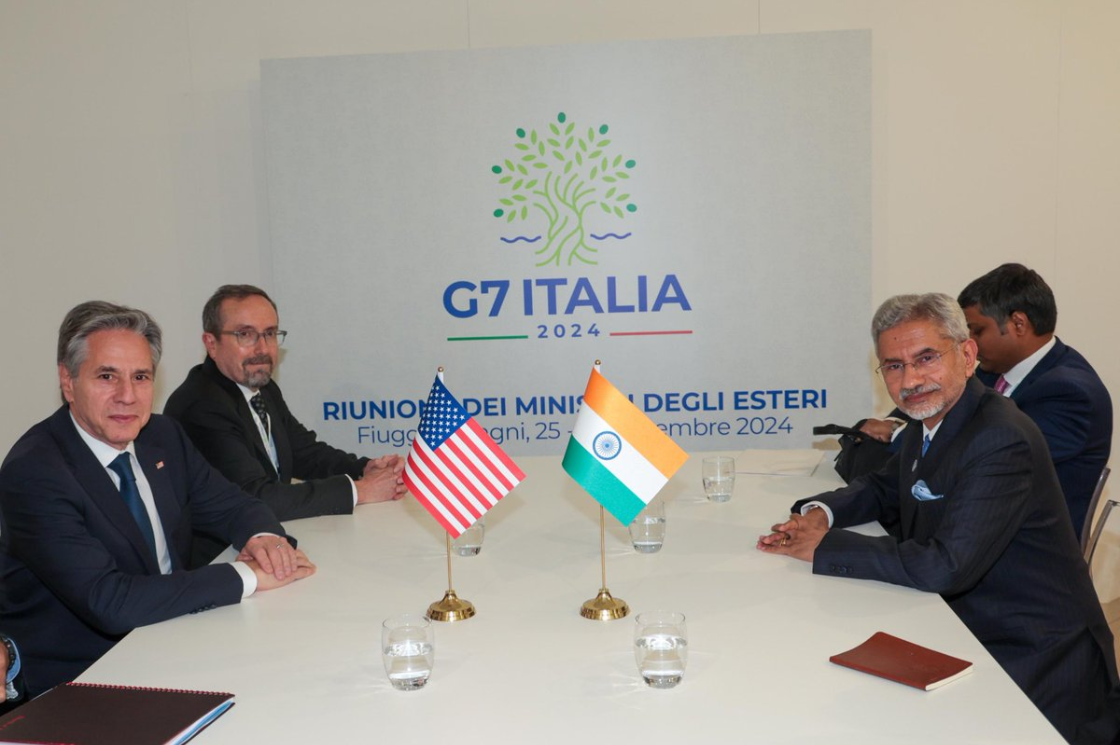
(Photo : Dr. SJaishankar-X)
External Affairs Minister S. Jaishankar and United States Secretary of State Antony Blinken held discussions on November 26 during the G7 meeting in Fiuggi, Italy. Their talks focused on the two nations' "close cooperation on global security."
Blinken later shared a photo with Jaishankar on the social media platform X (formerly Twitter), stating, "The US and India are stronger when we are working together. Indian External Affairs Minister Dr S Jaishankar and I met today in Italy to discuss the importance of our continued close cooperation to promote global security and prosperity."
Jaishankar also posted about the meeting on X and said he "discussed the state of the world and the India-US partnership, which continues to move forward", with Blinken.
US-India Relations: A Pillar for Global Security
The US-India relationship stands as a cornerstone of global diplomacy, driven by shared democratic values, strategic interests, and mutual respect. Both nations collaborate across diverse sectors, including defense, trade, technology, and climate action.
Recent dialogues, like the meeting between EAM S. Jaishankar and Secretary of State Antony Blinken, underscore their commitment to fostering global security and prosperity. With growing cooperation in the Indo-Pacific, joint initiatives on renewable energy, and strengthened economic ties, the partnership reflects a forward-looking alliance.
US State Department Spokesperson Matthew Miller stated that the United States seeks to maintain close coordination with India to tackle global security challenges.
Miller, in a readout of the meeting, mentioned that Blinken and Jaishankar reaffirmed their nations' strong commitment to strengthening bilateral relations.
Challenges in India-US Relations
Geopolitical Differences: Diverging views on Russia, Iran, and other regional conflicts sometimes challenge bilateral strategic cooperation.
Trade Imbalances: They cause friction, affecting sectors like agriculture and manufacturing. U.S. concerns over India's tariffs on agricultural products have led to trade disputes.
Visa Restrictions: Stricter U.S. visa regulations, particularly for H1-B visas, limit Indian IT professionals' mobility and affect the tech industry.
Data Privacy Concerns: Differing approaches to data protection and cross-border data. The U.S. seeks free data flow, while India emphasizes data localization for privacy.
Intellectual Property (IP) Rights: Disagreements over IP protections, particularly in pharmaceuticals, impact trade negotiations.
Despite the challenges the US-India relationship will prosper. The ongoing dialogue and commitment to resolving differences demonstrate that the partnership will continue to evolve, with both countries working together to shape a more secure and prosperous future for their citizens and the world at large.
As the world increasingly turns to India and the United States for leadership on issues of global importance, the potential for deeper cooperation remains vast.









